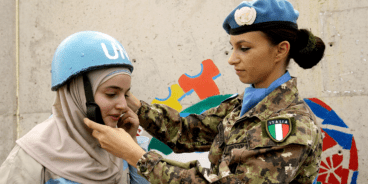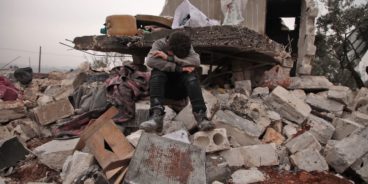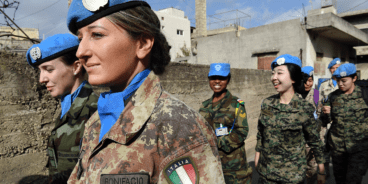
Opening Statement at: “The Future of Civilian Protection in Peace Operations: Endorsing and Implementing the Kigali Principles”
Opening Statement, as delivered on 11 May 2016 by Dr. Simon Adams, Executive Director of the Global Centre for the Responsibility to Protect, at the event, “The Future of Civilian Protection in Peace Operations: Endorsing and Implementing the Kigali Principles,” governments of Rwanda and the Netherlands at UN Headquarters.
Your Excellencies, distinguished guests, ladies and gentlemen, good afternoon. The Global Centre is honored to co-host this high-level event on “The Future of Civilian Protection in Peace Operations: Endorsing and Implementing the Kigali Principles” with the governments of the Kingdom of the Netherlands and the Republic of Rwanda.
Your Excellencies, the world is in crisis. The number of people killed in armed combat has tripled compared with the previous decade. The global displacement of civilians due to conflict, mass atrocities and persecution is at its highest level since the end of the Second World War.
Right now there are more than 60 million IDPs, asylum seekers and refugees – a number that is staggering to consider. And behind that large, impersonal and daunting number is the reality of ordinary lives; of 60 million mothers, fathers, sons, daughters, children, people with their own hopes and dreams.
There are literally tens of millions of frightened and vulnerable people living in conflict zones who look to the UN to fulfill its promise to “reaffirm faith in fundamental human rights”, to save them “from the scourge of war,” and to protect the “dignity and worth of the human person”.
These are not my words, of course, this is the promise of the UN Charter. And it is a promise that is literally a matter of life or death for many people.
In these difficult times, Peacekeepers are often at the frontlines of protecting civilians and stabilizing conflicts in the world today, sometimes paying the greatest sacrifice as they do so. Ten out of sixteen current UN peacekeeping missions, involving more than 97 percent of all UN peacekeepers, have protection of civilians mandates.
However, despite the presence of sizeable peacekeeping operations, the UN continues to struggle to protect civilians from mass atrocity crimes in the Central African Republic, Democratic Republic of Congo, Sudan and South Sudan to name but a few examples.
The Kigali Principles on the Protection of Civilians, adopted last May, provide a blueprint to enhance implementation of protection of civilian mandates. The Principles offer practical ways to address current challenges in peacekeeping, including on issues relating to training, early warning, resources and capabilities, use of force and accountability.
The Kigali Principles recognize that the protection of civilians is at the heart of twenty-first century peacekeeping. I encourage all Member States to endorse this important initiative in advance of the World Humanitarian Summit later this month and the next Peacekeeping conference, set to take place in London during September.
Related Content


Civil Society Statement on the Protection of Civilians in Armed Conflict (2021)
